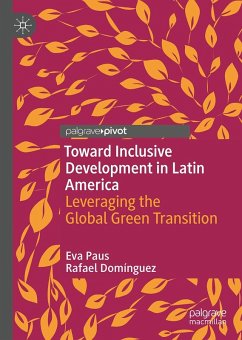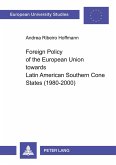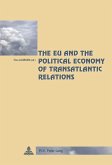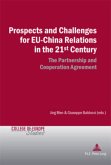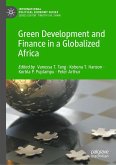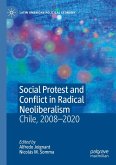"A major contribution to the analysis of how to fulfill the triple dimensions of sustainable development: economic growth, social development, and environmental sustainability." José Antonio Ocampo, Professor at Columbia University, former Minister of Finance of Colombia, former UN Under-Secretary-General for Economic and Social Affairs, and former Executive Secretary of the Economic Commission for Latin America and the Caribbean
The global green transition presents a unique opportunity for resource-rich Latin American nations to leverage natural assets to reduce problematic structural barriers while expanding social inclusion and strengthening responses to climate change.
This book examines why coordinated and proactive development strategies aligned with emerging global sustainability imperatives are essential for achieving these goals. It outlines the contours of an inclusive green development strategy, placing a green developmental state at the center and emphasizing the role of broadly defined industrial policies. Drawing on heterodox economics and international political economy, Eva Paus and Rafael Domínguez analyze how Latin American governments can respond to current economic and geopolitical pressures.
Systemic change is possible if states adopt environmental-developmental roles, pursue active non-alignment, and engage in more coordinated foreign policy efforts. Readers will gain insight into the political and economic conditions that shape the feasibility of inclusive green development. The resulting book breaks down the strategic choices available to governments seeking to integrate sustainability with long-term economic transformation and inclusion. It offers a grounded perspective on how policy direction, institutional capacity, and international positioning can be used to navigate the challenges of our times.
The global green transition presents a unique opportunity for resource-rich Latin American nations to leverage natural assets to reduce problematic structural barriers while expanding social inclusion and strengthening responses to climate change.
This book examines why coordinated and proactive development strategies aligned with emerging global sustainability imperatives are essential for achieving these goals. It outlines the contours of an inclusive green development strategy, placing a green developmental state at the center and emphasizing the role of broadly defined industrial policies. Drawing on heterodox economics and international political economy, Eva Paus and Rafael Domínguez analyze how Latin American governments can respond to current economic and geopolitical pressures.
Systemic change is possible if states adopt environmental-developmental roles, pursue active non-alignment, and engage in more coordinated foreign policy efforts. Readers will gain insight into the political and economic conditions that shape the feasibility of inclusive green development. The resulting book breaks down the strategic choices available to governments seeking to integrate sustainability with long-term economic transformation and inclusion. It offers a grounded perspective on how policy direction, institutional capacity, and international positioning can be used to navigate the challenges of our times.

